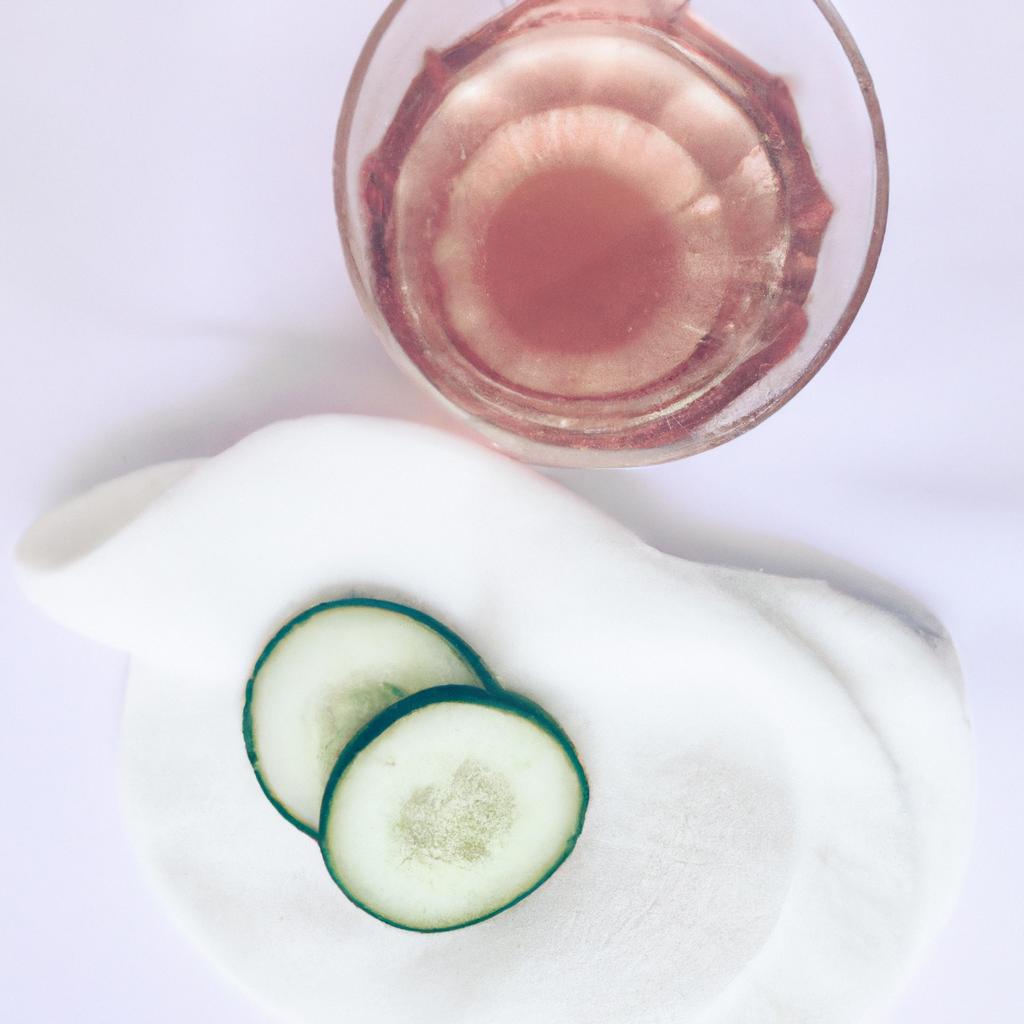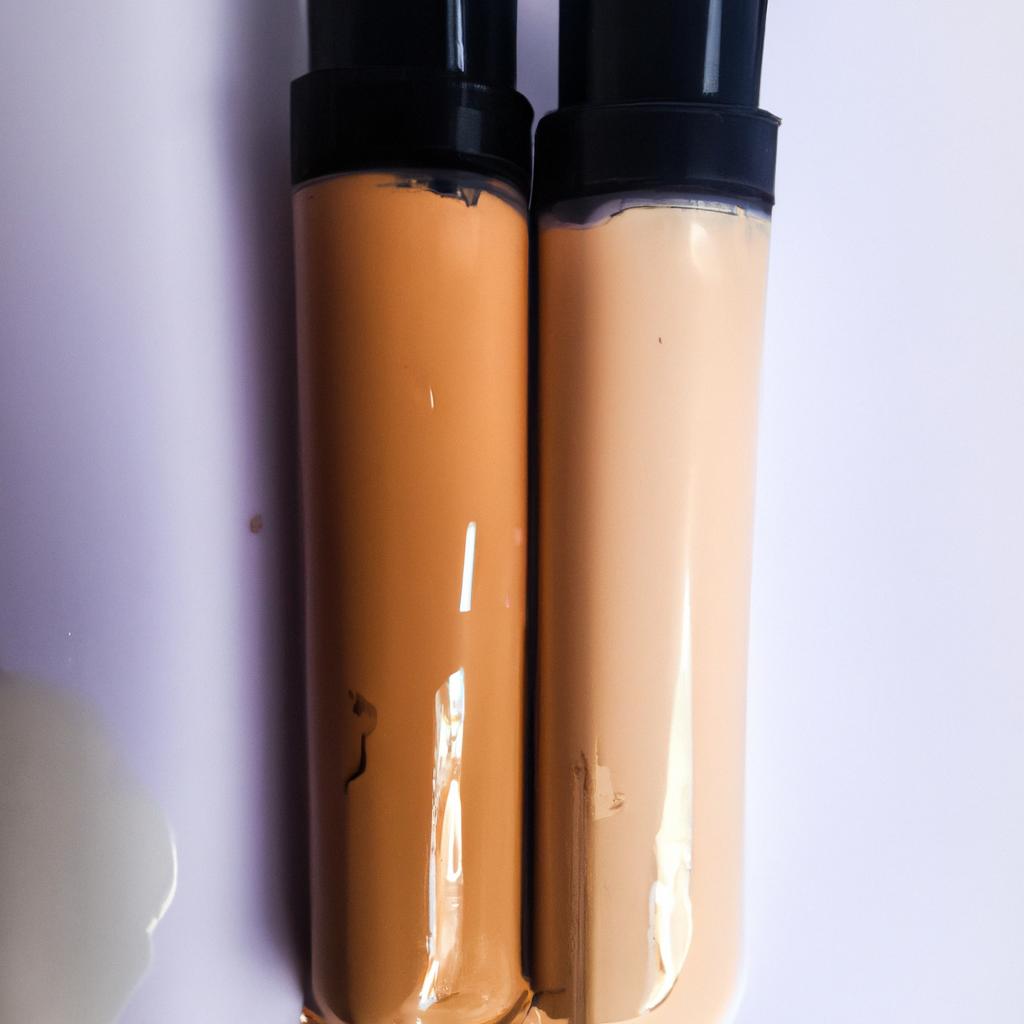Introduction
Having a skincare routine is an important part of achieving clear, glowing skin. It can help you to cleanse your skin, remove dirt and other impurities, reduce the appearance of acne, and prevent wrinkles. This guide will provide an overview of the different steps involved in a good skincare routine and provide advice on which products are right for you.
What is a Good Skincare Routine?
Having a good skincare routine is essential for achieving clear, glowing skin. It involves properly cleansing, toning, and moisturizing each day. By regularly following such a routine, it can help keep your skin healthy and looking its best.
Cleansing
Cleansing is the first step in any skincare routine. It helps to remove dirt, oil, and makeup that has built up throughout the day. It also helps to keep pores clear and reduce the risk of breakouts. There are different types of cleansers available, from gentle cream-based ones to deep-cleaning foaming ones. It’s important to choose the right cleanser for your skin type: those with oily skin may opt for a foaming cleanser, whereas those with dry skin should go for something more hydrating.
Toners
Toners help to balance the pH levels of your skin and remove any residue left behind by cleansers. They can also help to unclog pores and prep the skin for moisturizer. Toners come in different forms, such as exfoliating ones and hydrating ones. It’s important to choose the right one for your skin type: those with oily skin may opt for an exfoliating toner, while those with dry skin should go for something more hydrating.
Moisturizing
Moisturizing helps to keep skin hydrated and prevent it from becoming dry or flaky. Moisturizers come in a variety of forms, such as lotions, creams, and oils. It’s important to choose one that’s suited to your skin type: those with oily skin may opt for a lightweight product, whereas those with dry skin should go for something more nourishing. Applying moisturizer daily will help keep your skin feeling soft and smooth.
Types of Skincare Products
Good skincare starts with understanding the different types of products that are available and knowing which ones to use for your individual skin type. Choosing the right cleansers, toners, moisturizers, face masks, serums, and facial oils can make all the difference in achieving clear, glowing skin.
Cleansing
Cleansers are one of the most important elements of a successful skincare routine, as they help to remove impurities from the skin and maintain its natural balance. There are several types of cleansers to choose from, including gel cleansers, cream cleansers, foaming cleansers, and oil cleansers. When choosing the right cleanser, consider your skin type and pay attention to ingredients such as hyaluronic acid and ceramides for hydration, vitamin C for brightening, or salicylic acid for acne-prone skin.
Toning
Toning is an essential step in any skincare routine as it helps to refine the skin’s texture and restore its pH balance. Toner can do more than just refresh the skin—it can also provide additional benefits such as brightening and calming. For this reason, it’s important to choose the right toner for your skin type and be aware of ingredients like aloe vera, glycolic acid, and tea tree oil, which can be helpful for different skin concerns.
Moisturizing
Once your skin is cleansed and toned, it’s time to lock in the moisture. Moisturizers are important for restoring and maintaining the skin’s natural hydration levels. Different skin types require different types of moisturizers, so it’s important to choose the right one. Look for ingredients like hyaluronic acid, ceramides, and shea butter to ensure your skin stays hydrated throughout the day.
Understanding Different Types of Cleansers
Cleansers are an essential part of any skincare routine. Cleansers help rid the skin of dirt, oil, and makeup that can build up over the course of the day. Having the right cleanser for your skin type is key to getting clear, glowing skin.
There are a few different types of cleansers to choose from:
- Foaming Cleansers – These cleansers are ideal for those with combination or oily skin. They get rid of excess oil without being overly drying.
- Cream Cleansers – Cream cleansers are best for those with dry skin. They are gentle but effective, and can help replenish lost moisture.
- Gel Cleansers – Gel cleansers are lightweight and often designed for sensitive skin. They can cleanse without irritating the skin.
- Oil-Based Cleansers – Oil-based cleansers are great for all kinds of skin and can break down stubborn makeup and dirt.
When selecting a cleanser, it is important to take into consideration skin type, preferences, and budget. If you have sensitive skin, look for a cleanser that is free of fragrance and harsh chemicals. For combination or oily skin, look for a cleanser that contains salicylic acid or glycolic acid to help control shine. Dry skin types should look for a creamy cleanser that provides plenty of hydration.
Understanding Toners and Exfoliants
Toning and exfoliation are two essential steps in keeping your skin looking healthy and glowing. But what is the difference between them? Well, toning helps balance your skin’s pH levels and give it a refreshment after cleansing. Exfoliating helps to rid the skin of dead cells and debris, allowing skincare products to penetrate more deeply.
When choosing the right toner for your skin type, it’s important to consider the ingredients list. Look for alcohol-free or witch hazel-based products that contain soothing botanicals such as rosewater, aloe, and chamomile. These ingredients help to keep your skin hydrated while ensuring it doesn’t become stripped of its natural oils.
Similarly, exfoliating products should also be chosen carefully, depending on skin type. For dry, sensitive skin, look for gentle exfoliators made of natural ingredients, like honey, oats, and olive oil. For oily or combination skin types, you may opt for an exfoliator with chemical exfoliants, such as lactic acid or salicylic acid. It’s important to read the instructions carefully and make sure you don’t over exfoliate, as this can cause damage to your skin.
All About Moisturizers
Having a good moisturizer is an essential part of any skincare routine. Moisturizers help to retain the skin’s natural moisture levels, keeping it healthy and hydrated. Different kinds of moisturizers have different benefits, so it’s important to choose the right one for your skin type.
One of the most common types of moisturizers are lotions and creams. Lotions are lighter in texture, so they are ideal for normal or combination skin types, as they won’t clog the pores. Creams are richer and thicker, so they are great for dry skin types, as they can provide extra nourishment and hydration.
Another popular type of moisturizer is an ointment. Ointments are often quite greasy, but they are great for very dry skin, as they create a protective barrier over the skin, helping to lock in moisture.
No matter which type of moisturizer you choose, remember to look for ingredients that are suited to your skin type. For example, if you have oily skin, look for an oil-free moisturizer that is lightweight and non-greasy.
Face Masks
Face masks can be an easy and effective way to give your skin a healthy boost. Face masks are designed to deliver beneficial nutrients to the skin, deep cleanse pores, and help the skin retain its natural moisture. Different masks can target different skin concerns such as dryness or acne, so it’s important to select a mask that caters to your particular skin type.
For those with oily skin, look for masks that are marked as “clay masks” or “detoxifying”, as these masks will help to draw out excess oil and other impurities from the skin’s surface. For those with dry skin, opt for a more hydrating mask such as ones rich in collagen or hyaluronic acid. For those with sensitive skin, select a gentler mask that is marked as “gentle”, “hydrating” or “soothing”.
When using any face mask, it is important to read the instructions carefully and allow the mask to stay on for the recommended amount of time. After removing the mask, rinse the face with warm water and gently pat dry with a clean towel. Applying a moisturizer afterwards is also recommended.
Examine Different Facial Serums
Facial serums are a popular skincare product amongst adults, as they can provide many benefits to the skin. Serums typically contain a high concentration of active ingredients, which are designed to target specific skin issues, such as wrinkles, age spots, or blemishes. They can also help to improve the texture and tone of the skin over time.
When choosing a serum, it’s important to consider your skin type and any problems you may have. For example, someone with oily skin should opt for a serum that is oil-free or non-comedogenic, while those with dry skin should look for a hydrating formula. Additionally, if you are dealing with acne, you may want to look for a serum that has active ingredients such as salicylic acid to help keep breakouts at bay.
It can be helpful to consult with a dermatologist or skincare specialist before purchasing a serum, as they can provide personalized advice on what products are best for your skin type and needs. Furthermore, always conduct a patch test on a small area of skin before using any new skincare product, as some serums can cause skin irritation for some people.
Facial Oils
Facial oils can be a great addition to your skincare routine, particularly if you have dry or aging skin. Oils are powerful because they are filled with essential fatty acids that are important for maintaining natural moisture levels in the skin. They can help to protect the skin from environmental damage and restore healthy balance. Different oils can also provide different health benefits, such as vitamin E, antioxidants, and anti-inflammatory properties.
When selecting facial oils, it is important to choose the right one for your skin type. For example, those with oily skin can benefit from using lighter oils like jojoba oil or squalane oil, while those with dry skin can opt for heavier oils like avocado oil and argan oil. It’s also important to note that some oils can be too harsh for certain skin types, so be sure to do your research before trying a new facial oil.
At the end of the day, facial oils can be a great way to nourish and protect your skin, but it’s important to remember that everyone’s skin is unique and what works for one person may not work for another. So be sure to read up and find the right oil for you!
The Importance of Sunscreen
It is essential to use sunscreen to protect your skin from the sun’s harsh UV rays. Exposure to UV rays can lead to premature wrinkles, age spots, and even skin cancer in some cases. Taking the time to find a good sunscreen that is suitable for your skin type and applying it everyday, even on cloudy days, is key to protecting your skin.
When selecting sunscreen, make sure that the product has an SPF of at least 30 or higher. You should also check to see if a product is labeled as broad spectrum, as this means that it offers protection against both UVA and UVB rays. Try to find a lightweight sunscreen that won’t clog your pores. Lastly, don’t forget to reapply your sunscreen throughout the day, especially if you’re doing something active or spending a lot of time in the sun.
The Importance of Healthy Habits
Having a good skincare routine is one important factor in achieving clear, glowing skin but it’s not the only factor. It’s also important to adopt healthy lifestyle habits such as eating a balanced diet, exercising regularly, managing stress, and getting enough sleep.
Eating a healthy diet that consists of plenty of fruits and vegetables is essential to skin health. Fruits and vegetables are packed with vitamins, minerals, antioxidants, and other nutrients that are important for healthy skin. In addition, they can help protect your skin from damage caused by free radicals and environmental toxins.
Regular exercise helps to improve circulation and detoxify the body, which can promote better skin health. Exercise also boosts endorphins, which can help reduce stress levels and lead to a more positive outlook. This can, in turn, make your skin look brighter and more radiant.
Managing stress is also key to having clear, glowing skin. Stress can cause inflammation and breakouts, so it’s important to find ways to manage stress levels. Meditation, yoga, or any form of calming activity can help to lower stress levels and reduce inflammation.
Finally, getting enough sleep is important for skin health. When you don’t get enough sleep, your body produces more cortisol, which can lead to breakouts. Aim for 7-8 hours of uninterrupted sleep each night to keep your skin looking its best.
Summary & Conclusion
To achieve clear, glowing skin, a daily skincare routine is essential. This includes cleansing, toning, and moisturizing with products that are best suited to your skin type. Furthermore, face masks, serums, and facial oils can provide additional benefits. To keep your skin as healthy as possible, it is also important to wear sunscreen and maintain healthy lifestyle habits, like a balanced diet, exercise, stress-management, and sufficient sleep.
In conclusion, having a skincare routine will help you achieve clearer, healthier skin. Be sure to choose products that suit your skin type and maintain healthy habits to ensure that your skin looks its best.
comments: 0





